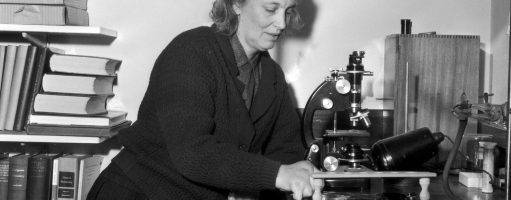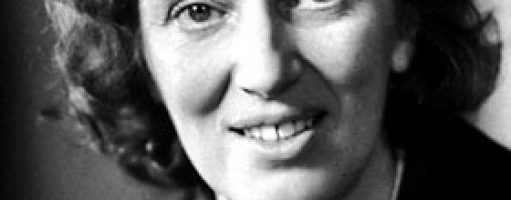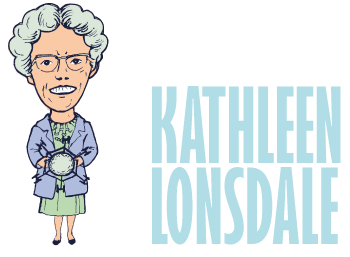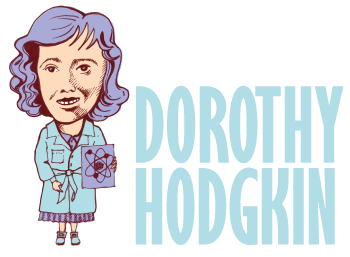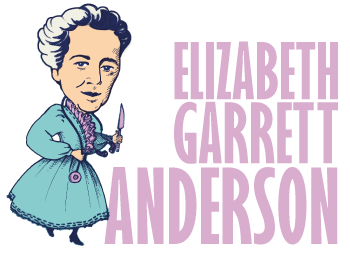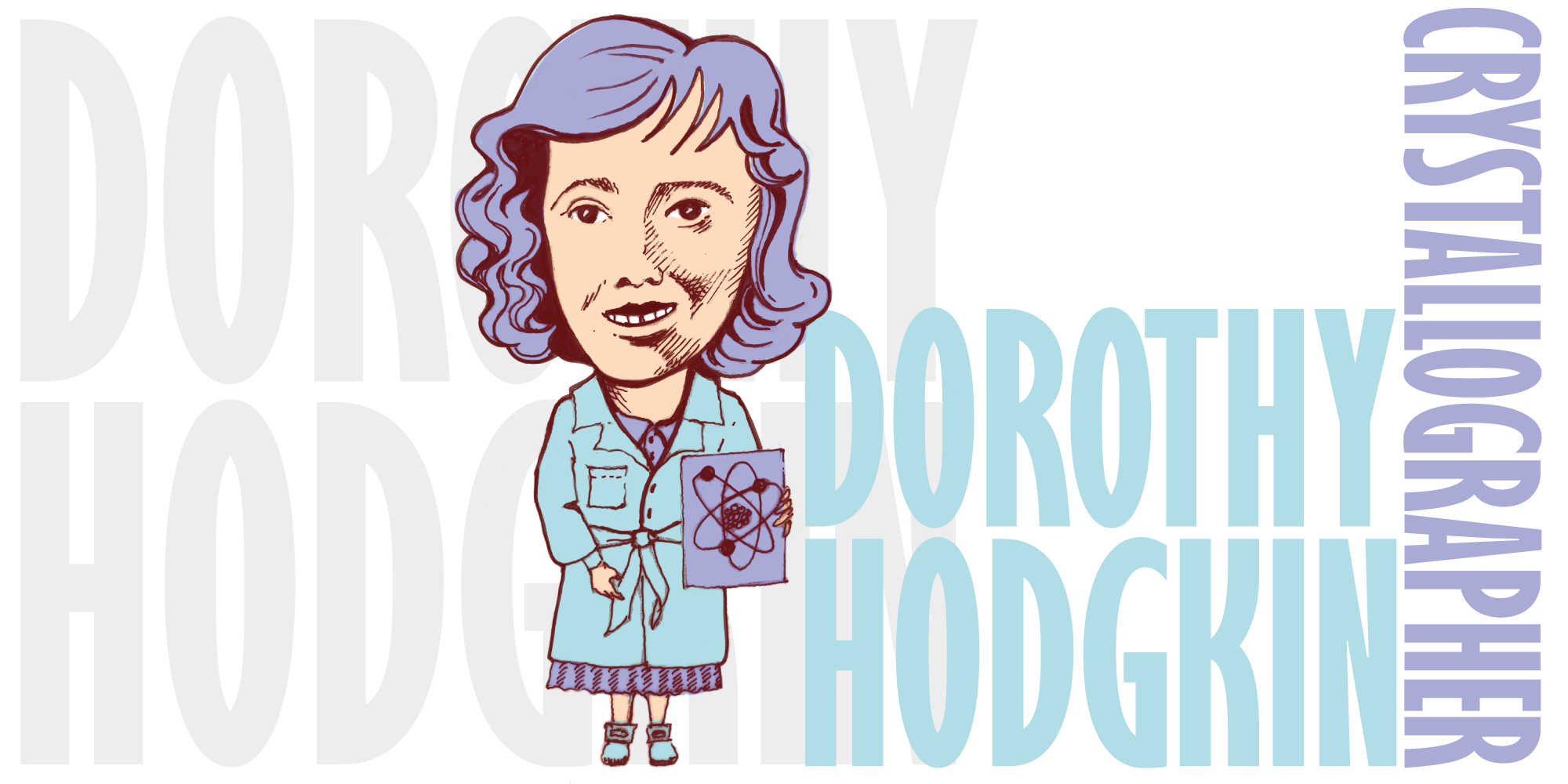
When and where was she born?
Dorothy Mary Crowfoot Hodgkin was born on 12 May 1910 in Cairo, Egypt. She died of a stroke aged 84, in Warwickshire.
Fun facts about her life
- Dorothy was only one of two girls allowed to study Chemistry at her school; Sir John Leman Grammar School in Beccles;
- She taught Margaret Thatcher at Oxford. When she was the Conservative prime minister, Thatcher hung a portrait of Hodgkin up in her office despite Dorothy being a life-long Labour supporter;
- She became the first woman to receive maternity pay from Oxford university;
- She was only allowed to visit the USA with special permission from the CIA because of her husband’s association with the communist party, and her own political activities;
- In 1982, an Asteroid in 1982 was named after her!
What’s important about her scientific work?
She advanced the ability of x-ray crystallography to enable scientists to see the structures of biomolecules – it allowed scientists to see how molecules behave and how they can be altered. Among her most important and influential discoveries was the confirmation of the structure of penicillin, the structure of vitamin B12 and after 35 years work, alongside a team of international scientists, she unlocked the structure of insulin to help diabetes.

What do we know about her childhood?
As a child Dorothy lived with her grandparents in Sussex while her parents worked abroad. Her mother was a botanist and encouraged Dorothy’s interest in the sciences, presenting her with a 16th birthday present book on X-Ray Crystallography which helped her decide her future. She hoped to study at Oxford University, but you had to know Latin to get in, so her Headteacher taught her enough to pass the exam. She gained a degree at Somerville College, Oxford before studying for her PHD at Newnham College, Cambridge.
What struggles did she face?
In 1934 at the age of 24, Dorothy was diagnosed with Rheumatoid Arthritis, which causes crippling pain in the joints and confined her to a wheelchair in later life. She did not however, let it get in the way of continuing her scientific work.
What did she achieve?
- She was awarded many prizes including:
- Nobel Prize for Chemistry in 1964 – the only British Woman to win one in science;
- Lenin Peace Prize in 1987 from the Soviet Government in recognition of her work for peace and disarmament.

